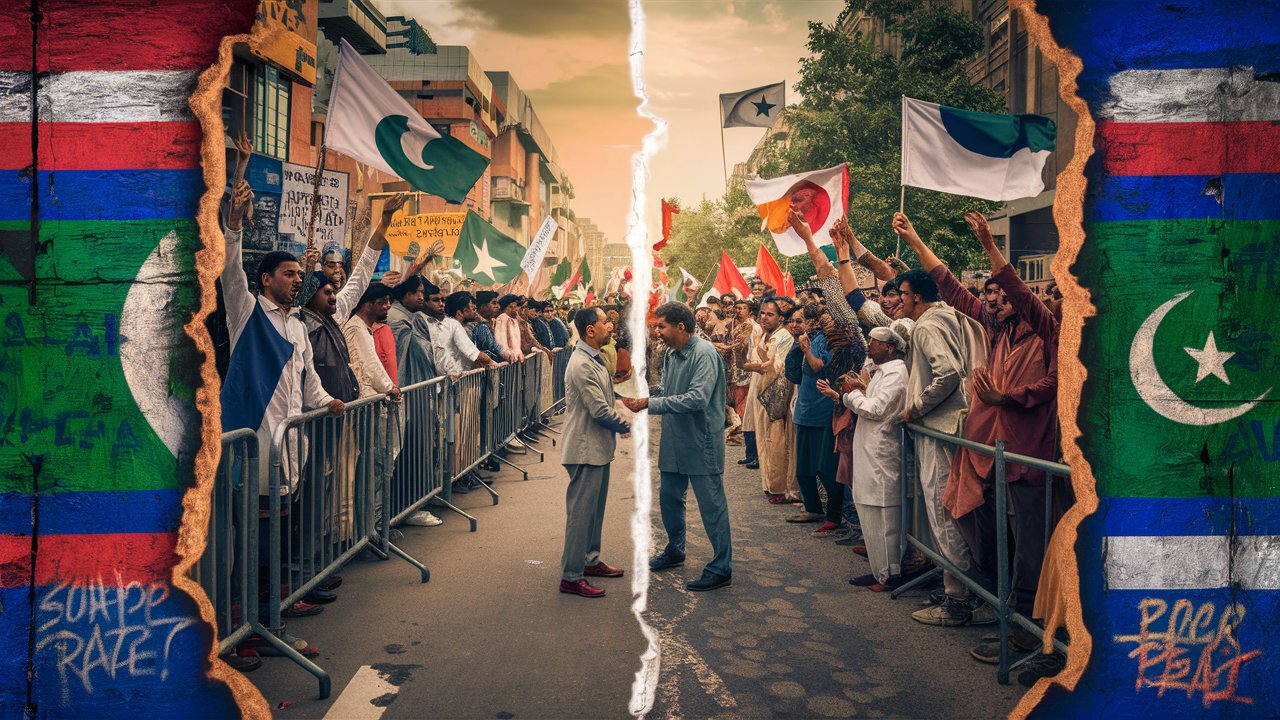3. Pakistan and the future of Kashmir cause. 2020

3. Pakistan and the future of Kashmir cause. 2020
Introduction
The conflict over Kashmir is one of the oldest and most complex issues in South Asia. Pakistan and India have been engaged in a territorial dispute over the region since the partition of the subcontinent in 1947. The conflict has resulted in multiple wars, human rights violations, and political tensions between the two countries. This essay discusses the future of the Kashmir cause and Pakistan’s role in resolving the issue.
Background of the Kashmir Conflict
Kashmir is a region located in the northern part of the Indian subcontinent. The region was ruled by a Hindu king, Maharaja Hari Singh, before the partition of India in 1947. During the partition, the British government gave the princely states, including Kashmir, the option to join either India or Pakistan. Maharaja Hari Singh initially chose to remain independent, but in October 1947, tribal fighters from Pakistan invaded the region, prompting the Maharaja to seek India’s assistance.
The conflict over Kashmir escalated, resulting in a war between India and Pakistan. In 1948, the United Nations intervened, and both countries agreed to a ceasefire. As per the UN resolution, a plebiscite was to be held in Kashmir to determine its future status. However, the plebiscite was never held, and the region remains divided between India and Pakistan. India controls two-thirds of the region, including the populated areas, while Pakistan controls the remaining one-third.
Pakistan’s Position on the Kashmir Conflict
Pakistan has been advocating for the right of self-determination for the people of Kashmir since the conflict began. Pakistan believes that Kashmir is an unresolved international dispute and that the people of Kashmir should have the right to determine their future status. Pakistan has always maintained that the only solution to the Kashmir conflict is through dialogue and negotiations.
Pakistan’s stance on the Kashmir conflict is based on several factors. Firstly, Pakistan argues that the people of Kashmir have a right to self-determination, which is enshrined in the UN Charter. Secondly, Pakistan believes that the UN resolutions on Kashmir provide a basis for resolving the conflict. Finally, Pakistan contends that the ongoing human rights violations in Indian-administered Kashmir necessitate international attention and intervention.
Future of the Kashmir Cause
The Kashmir conflict remains unresolved, and tensions between India and Pakistan continue to escalate. The current situation in Kashmir is volatile, with frequent incidents of violence and human rights violations. The international community has also failed to resolve the issue, and the UN resolutions on Kashmir remain unimplemented.
There are several possible scenarios for the future of the Kashmir cause. Firstly, the status quo may continue, with the conflict remaining unresolved. However, this scenario is not sustainable, as it would perpetuate the ongoing human rights violations and political tensions between India and Pakistan.
Secondly, India and Pakistan could engage in a dialogue and negotiate a solution to the conflict. The negotiations could be facilitated by the international community, and the solution could be based on the UN resolutions on Kashmir. This scenario is desirable, as it would result in a peaceful resolution to the conflict and could lead to improved relations between India and Pakistan.
Thirdly, the people of Kashmir could exercise their right to self-determination through a referendum. This scenario would require the support of the international community and the agreement of India and Pakistan. However, given the current political climate, this scenario is unlikely in the short term.
Pakistan’s Role in Resolving the Kashmir Conflict
Pakistan has a crucial role to play in resolving the Kashmir conflict. Firstly, Pakistan needs to continue advocating for the right of self-determination for the people of Kashmir. Pakistan should engage with the international community and raise awareness about the ongoing human rights violations in Indian-administered Kashmir.
Secondly, Pakistan should continue to engage with India and negotiate a solution to the conflict. Pakistan should emphasize the need for.
Visit: https://techinsightguru.com/